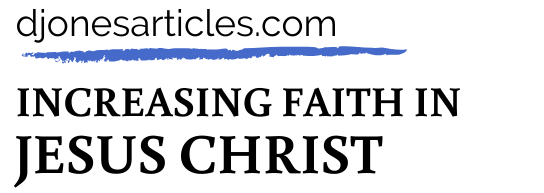Before He died, Jesus Christ ate one last meal called the Last Supper. At the end of this meal, He introduced the sacrament to His apostles, “And he took bread, and gave thanks, and brake it, and gave unto them, saying, This is my body which is given for you: this do in remembrance of me. Likewise also the cup after supper, saying, This cup is the new testament in my blood, which is shed for you.” (Luke 22: 19-20 in the Bible)
It appears that the Lord asked his disciples to partake of the Sacrament often in remembrance of His sacrifice of both body (died and then was resurrected) and blood (suffered for our sins). The New Testament mentions the first day of the week (Sunday) the disciples came together to partake of the sacrament and preach the word,
“And upon the first day of the week, when the disciples came together to break bread, Paul preached unto them, ready to depart on the morrow; and continued his speech until midnight…” (Acts 20: 7 in the Bible)
The Savior has given further instructions and reasons for partaking of the sacrament.
“And that thou mayest more fully keep thyself unspotted from the world, thou shalt go to the house of prayer and offer up thy sacraments upon my holy day; For verily this is a day appointed unto you to rest from your labors, and to pay thy devotions unto the Most High;…But remember that on this, the Lord’s day, thou shalt offer thine oblations and thy sacraments unto the Most High…” (Doctrine & Covenants 59: 9-12 p. 109)
“It is expedient that the church meet together often to partake of bread and wine in the remembrance of the Lord Jesus.” (Doctrine & Covenants 20: 75)
The Sacrament Covenant
In our church the congregations have the opportunity to partake of the Lord’s sacrament each Sunday.
Taking the sacrament is a sacred, holy time. The sacrament prayers remind us that as we take the bread and water (wine), we are remembering the body and blood Jesus Christ gave for us. We promise to follow Him and live a Christian life. We promise to try to keep God’s commandments. In return, the Holy Spirit will comfort, guide, and heal us. We should examine ourselves spiritually, honestly looking inward, before taking the sacrament.
“But let a man examine himself, and so let him eat of that bread, and drink of that cup” (1 Corinthians 11: 28 in the Bible).
To get ready to take the sacrament, we should honestly think about our lives and choices. We should repent of the mistakes and sins of the past week, including asking God for forgiveness. We don’t need to be perfect to take the sacrament, but our hearts should be humble.
Blessings Can Follow the Partaking of the Sacrament
“We all have regrets for words, deeds or thoughts from Sabbath to Sabbath that we would like to erase from our souls. Perhaps we have erred against someone or injured them; or, if there is ill feeling in our heart, we should repent, obtain forgiveness from those affected or transgressed against, then humbly, with a contrite spirit, prepare ourselves to be worthy to partake of the sacrament. If we have sincerely repented, we can be forgiven, and spiritual healing can come to our souls.” (David B. Haight “The Sacrament” in the Liahona May 1983)
Melvin J. Ballard wrote: “I am a witness that there is a spirit attending the administration of the sacrament that warms the soul from head to foot; you feel the wounds of the spirit being healed, and the load being lifted. Comfort and happiness come to the soul that is worthy and truly desirous of partaking of this spiritual food.” (Crusader for Righteousness [Salt Lake City, Bookcraft, 1966], p. 133.)
“Our personal reward for compliance with the covenants and obligations in the ordinance of the sacrament becomes the companionship of God’s Holy Spirit. This is the light that leads to eternal life. The divine virtues associated with the partaking of the Lord’s Supper are to keep His divine life ever in mind; to love the Lord with all our heart, might, mind, and strength; and to labor to bring to pass His ultimate purpose—the eternal life of man.” (David B. Haight “The Sacrament” in the Liahona May 1983)
The Savior said, “He that hath my commandments, and keepeth them, he it is that loveth me: and he that loveth me shall be loved of my Father, and I will love him, and will manifest myself to him.” (John 14:21 in the Bible) Partaking of the Sacrament frequently and remembering the Lord will help us keep His commandments.
Used some of the article “Jesus Christ Asked us to Take the Sacrament” in the Liahona March, 2021 Magazine.
